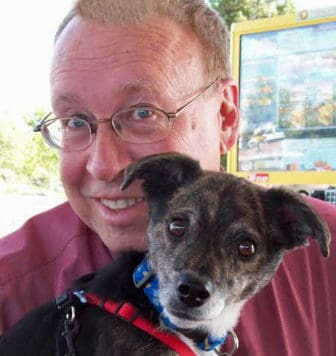“What the diary does not reveal… is the appalling fact that from late 1945 until 1952 Japanese medical researchers were prohibited by U. S. Occupation Authorities from publishing scientific articles on the effects of the atomic bombs.” – John W. Dower
COMMENTARY: It wasn’t the effects of the atomic bombs on Japan that prohibited Japanese medical researchers from publishing on the effects of the atomic bombs. Rather, it was how that information would be seen in New Mexico, which never suspected a lurking killer.

Courtesy photo
Michael Swickard
Three weeks before the atomic bombs were dropped on Japan, a concept test was made at New Mexico’s Trinity Site. This was an atomic device equal to what was used on Japan.
There’s no doubt that in Japan people were sickened by the resultant radiation. But there wasn’t that realization in New Mexico, even to this day. In fact, there’s resistance to that notion.
Robert Oppenheimer was the head of the Los Alamos Laboratory that developed the first nuclear weapons. The “Manhattan Project” initially produced three nuclear devices.
The first, a plutonium implosion device, was detonated July 16, 1945 at New Mexico’s Trinity Site. Oppenheimer remarked the explosion brought to mind the words of the Bhagavad Gita: “Now I am become Death, the destroyer of worlds.” I certainly understand that thought.
That plutonium scattered over New Mexico.
Two nuclear devices were used as bombs in Hiroshima and Nagasaki, Japan. On August 6, 1945, what was called “Little Boy” — a uranium-fueled bomb — was dropped on Hiroshima. Three days later, “Fat Man” — a plutonium implosion bomb — was dropped on Nagasaki.
These unconventional weapons allowed Emperor Hirohito to wrest control from the Army and surrender to end World War Two. The emperor had been trying to stop WWII for years. The power and control in the 1930s and 1940s in Japan was the Army, under General Hideki Tojo. The nation had not been under the power of Hirohito, who was only a figurehead leader.
One positive for Japan: The scientists saw how the New Mexico ground blast spread so much contamination, and they exploded the next two nuclear bombs at 2,000 feet to get the blunt force trauma on the site but not contaminate it as had happened in New Mexico.
The military sent lots of scientists to Hiroshima and Nagasaki to monitor the radiation but seem to have not done so in New Mexico. Or, perhaps they did and the government authorities realized what a mess they made in New Mexico. Worse, they didn’t want the role of cleaning up this God-awful mess. Curious, eh?
As the decades have passed and the New Mexicans who were sickened by the plutonium passed, the interest in this story has gone from very little to none at all, except among those people effected.
I don’t believe there’s a risk now, but government is supposed to protect the citizens. Our government hasn’t even said they are sorry for the God-awful mess they made and all of the people they sickened.
Michael Swickard is a former radio talk show host and has been a columnist for 30 years in a number of New Mexico newspapers. Swickard’s new novel, Hideaway Hills, is now available at Amazon.com. Agree with his opinion? Disagree? We welcome your views. Learn about submitting your own commentary here.
